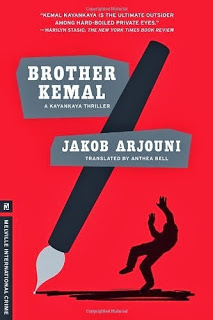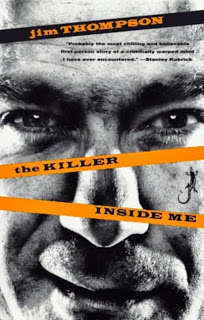He glanced up into the rear-view mirror, then squinted ahead through the windshield. He spat and rubbed his hand against his pants, wiped it slowly against the soiled black cloth. "Still got quite a little ride ahead of us, Mr. Ford. About thirty miles isn't it?"
"About that. Maybe a little more."
"I wonder if you'd like to tell me about it. You don't need to, you understand, but it might be helpful. I might be able to help someone else."
"Do you think I could--that I'm able to tell you?"
"Why not?" he said. "I had a client years ago, Mr. Ford, a very able doctor. One of the most pleasant men you'd want to meet, and he had more money than he knew what to do with. But he'd performed about fifty abortions before they moved in on him, and so far as the authorities could find out every one of the abortion patients had died. He'd deliberately seen that they did die of peritonitis about a month after the operation. And he told me why--and he could've told anyone else why, when he finally faced up to the facts--he'd done it. He had a younger brother who was 'unfinished,' a prematurely born monstrosity, as the result of an attempted late-pregnancy abortion. He saw that terrible half-child die in agony for years. He never recovered from the experience--and neither did the women he aborted... Insane? Well, the only legal definition we have for insanity is the condition which necessitates the confinement of a person. So, since he hadn't been confined when he killed those women, I reckon he was sane. He made pretty good sense to me, anyhow."
He shifted the cud in his jaw, chewed a moment and went on. "I never had any legal schooling, Mr. Ford; picked up my law by reading in an attorney's office. All I ever had in the way of higher education was a couple years in agricultural college, and that was pretty much a plain waste of time. Crop rotation? Well, how're you going to do it when the banks only make crop loans on cotton? Soil conservation? How're you going to do terracing and draining and contour plowing when you're cropping on shares? Purebred stock? Sure. Maybe you can trade your razorbacks for Poland Chinas.... I just learned two things there at that college, Mr. Ford, that was ever of any use to me. One was that I couldn't do any worse than the people that were in the saddle, so maybe I'd better try pulling 'em down and riding myself. The other was a definition I got out of the agronomy books, and I reckon it was even more important than the first. It did more to revise my thinking, if I'd really done any thinking up until that time. Before that I'd seen everything in black and white, good and bad. But after I was set straight I saw that the name you put to a thing depended on where you stood and where it stood. And... and here's the definition, right out of the agronomy books: 'A weed is a plant out of place.' Let me repeat that. 'A weed is a plant out of place.' I find a hollyhock in my cornfield, and it's a weed. I find it in my yard, and it's a flower.
"You're in my yard, Mr. Ford."
... So I told him how it had been while he nodded and spat and drove, a funny pot-bellied shrimp of a guy who really had just one thing, understanding, but so much of it that you never missed anything else. He understood me better'n I understood myself.
"Yes, yes," he'd say, "you had to like people. You had to keep telling yourself you liked them. You needed to offset the deep, subconscious feelings of guilt." Or, he'd say, he'd interrupt, "and, of course, you knew you'd never leave Central City. Overprotection had made you terrified of the outside world.
More important, it was part of the burden you had to carry to stay here and suffer."
He sure understood.
I reckon Billy Boy Walker's been cussed more in high places than any man in the country. But I never met a man I liked more.
I guess the way you felt about him depended on where you stood.








